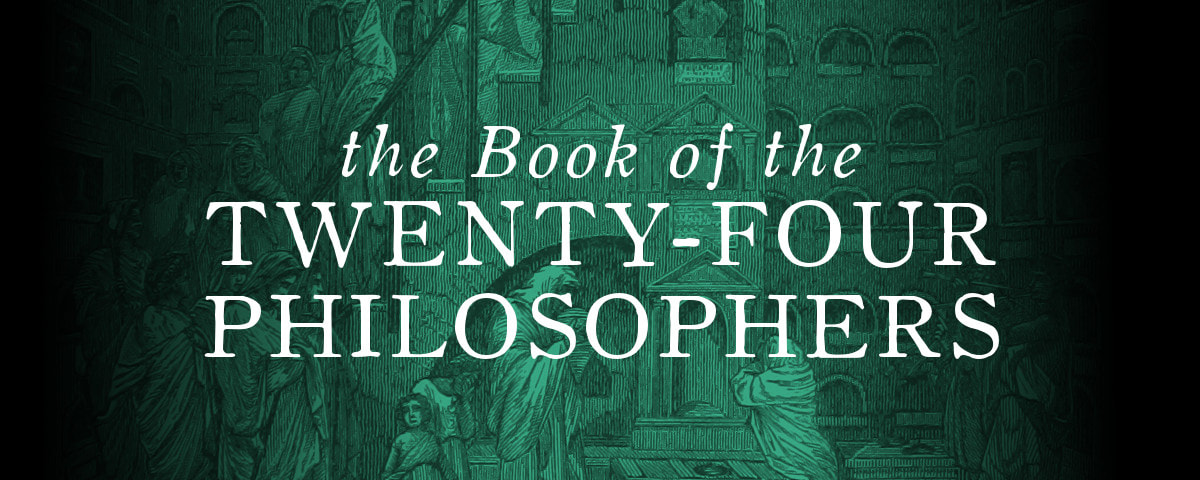c. 12th century CE
trans. Jason Colavito
2018
|
NOTE |
The Book of the Twenty-Four Philosophers is an influential Latin text that began circulating in the twelfth century, but its origins are unknown. Some believe that it derives from a Greek original circulating in Alexandria in the fourth or fifth century CE and transmitted to the Latin West via an Arabic intermediary. A minority opinion holds that the text is a fragment of Aristotle's lost On Philosophy, but most scholars believe it to be a product of the Middle Ages. Some manuscripts attribute the text to Hermes Trismegistus, and it is often categorized with medieval Hermetica. The manuscripts follow three different traditions: a simple presentation of the text (which I have translated below from the Latin), the text with a short scholastic commentary, and the text with a long form of the scholastic commentary.
|
BOOK OF THE TWENTY-FOUR PHILOSOPHERS
(The Book of Propositions or Rules of Theology, Said to Be by Termegistus)
At a meeting of twenty-four philosophers, one question alone remained for them: What is God? By common agreement, they decided to pause their meeting and establish a time for them to meet again, when each had set forth his own definition of God, so that by selecting from their individual definitions they might collectively establish something certain about God that they might agree upon.
- God is a unity generating unity, reflecting back on himself in one flame.
- God is an infinite sphere whose center is everywhere and whose circumference is nowhere.
- God is complete in whatsoever is his.
- God is a mind generating the Word and maintaining its continuity.
- God is that for which nothing better can be conceived.
- God is that which by comparison substance seem accidental, and the accidental seems to be nothing.
- God is the beginning without beginning, the process without variation, and the end without end.
- God is a love which, the more it is held, the more it hides.
- God is the only one to whom everything temporal is present.
- God is he whose power cannot be counted, whose being cannot be enclosed, whose goodness cannot be limited.
- God is above being, necessary, alone sufficient unto himself in abundance.
- God is he whose will is equal to his god-making, power, and wisdom.
- God is eternity, acting within himself, without division and disposition.
- God is the opposite of nothing, by mediation of being.
- God is life whose way to form is truth, to unity goodness.
- God is him alone whom words cannot signify because of his excellence, nor minds comprehend because of his incomparability.
- God is comprehension of himself alone, receiving no proclamation.
- God is a sphere that has as many circumferences as points.
- God is always moving but immobile.
- God is he who alone lives through his own understanding.
- God is the darkness remaining in the soul after all light has abandoned it.
- God is that from which there is whatever is not divided, through whom there is no variation, and in whom there is what is not mixed.
- God is that which the mind can know only through unknowing.
- God is the light that shines not through refraction, that passes through, but in things is the only likeness of God.



